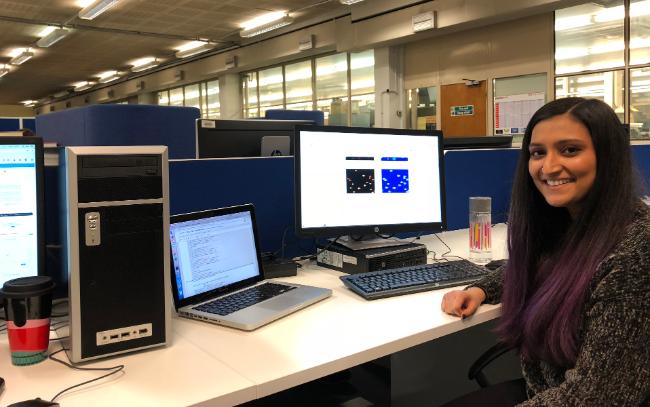Selina Dhinsey: “The landscape is changing, and we are seeing a higher uptake of women in science but there is still a long way to go.”

“Through school, I'd always been more interested in Science and Maths than other subjects and from early on I knew I'd end up in this kind of field. The specifics were not perfectly clear but it was a start!
My maths and science teachers really had an impact on me and made the subjects engaging going beyond the usual 'textbook teaching'. I think often the role of a teacher is overlooked as their job is very demanding, something I've had a little insight into through tutoring and work experience in schools. I considered a few options for my career during high school ranging from medicine to chemical engineering and even teaching but picking Physics at A Level struck a chord and I knew this was what I wanted to pursue further.”
“I did my undergraduate, integrated master’s degree at the University of Liverpool and decided to stay here for my PhD. I'd initially started looking at computer science-based projects as I was interested in machine learning and big data. When I heard about a new training initiative; LIV.DAT in the Physics department, it felt like all my plans had drawn together in harmony. My project has allowed me to do a more interdisciplinary PhD incorporating Physics, Computer Science and Biology. It's almost as though someone read about my 14 year old career interests and put together the perfect project!”
In 2017 Selina joined the QUASAR Group as a student within the Liverpool LIV.DAT CDT in October. Her research looks into modelling proton therapy for the treatment of cancer using Monte Carlo Methods. She is currently working on writing a program which will automate image analysis to aid radiobiologists in determining the level of damage caused to DNA after proton irradiation.
“To see more women higher up in their respective fields we need to engage girls at a very young age”
“I consider myself very lucky as I've grown up in a positive environment in terms of my education and career prospects. I've been supported, both at school and home, allowing me to pursue whatever I desired even if it seemed a bit crazy or far-fetched at the time. Growing up, I rarely saw female figures in Science being promoted or recognised for their work. Although this didn't falter my progression, I understand that many others do not have the same environment I had. This is why I am passionate about promoting STEM and women in STEM in particular. To see more women higher up in their respective fields we need to engage girls at a very young age, so outreach events are especially important. The landscape is changing, and we are seeing a higher uptake of women in science but there is still a long way to go. I think if we can at least change the mind set of young girls so that they don't rule out STEM careers because it’s 'not for them' or 'boy jobs' we will make great progress.”